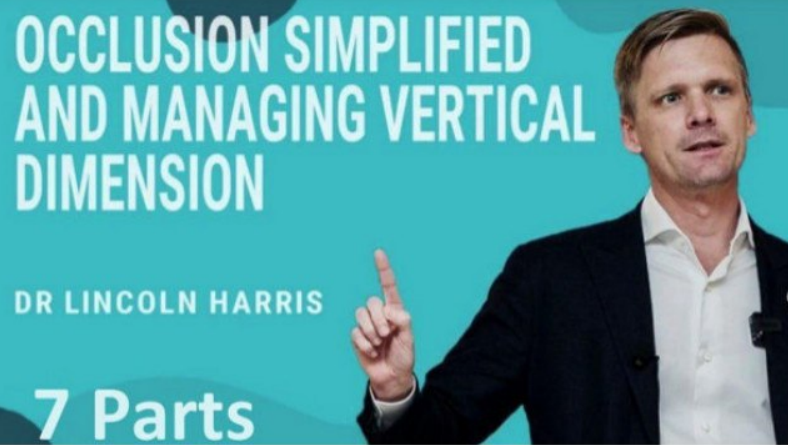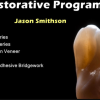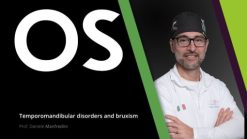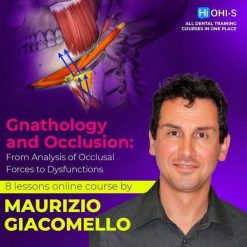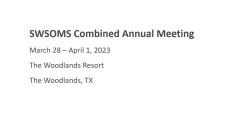Occlusion Simplified and Managing Vertical Dimension (7 Parts)
$33,75
This Product is shared via google drive download link, So please share your correct Gmail id while placing the order .Please note that there are no CME points or certificate associated with this course Samples for Courses Can be found here : Free Samples Here!
Category: Dentistry
Occlusion Simplified and Managing Vertical Dimension (7 Parts)
In Part 1, Dr Lincoln Harris discusses:
- What occlusion really is . Bracketed tooth . Marginal ridges . Cusps and Fissures . Considered Occlusal Adjustment . Bracketed Teeth . False Contacts . Choosing an impression tray . Planning and Records vs Adjustment and Grinding . When things break . Why do teeth break? . Static load/Fatigue . Concentrations of force . Tensile Stress . Compensating for tensile stress . Fatigue/concentrated force . Pseudo cross bite.
In Part 2, Dr Lincoln Harris discusses:
- Forces on the jaw . Centric relation . Class III’s and Occlusion . The lateral pterygoid . Muscle contracture . Eruption and intrusion of teeth . Occlusal disease . Occlusion matters to the dentist, not the patient . Programming of the jaw . Deprogramming . What is a leaf gauge and how to utilise them . Centric relation won’t always be the best or most comfortable position . Steep eminence and the shape of teeth . Why take protrusive records . Steep eminence visual . Shallow eminence visual . Taking protrusive records . Types of bite records . Why take a static bite . Squash bite in MIP . Rehabilitation cases and dentures . Choosing a face-bow . Checking occlusion on full mouth rehabilitation’s . Restoring lost vertical dimension
In Part 3, Dr Lincoln Harris discusses:
- Occlusal Adjustments . High and Low Resistance . Clenching, grinding and parafunction . Cracking of restored dentition . Splinting Teeth . Treating the toothache patient . Muscles of jaw movement.
In Part 4, Dr Lincoln Harris discusses:
- How to allow a denture patient to still be comfortable in many bite positions . Function and cosmetics go together . Planning treatment . Why people are phobic . Taking a bite with no vertical occlusal stops . Leaf gauges . Effects of relaxing the lateral pterygoids . Devices for deprogramming the lateral pterygoids . Face-bows . Design . Mock Up . Tooth shape and occlusion . Form is important . Plasticised layer of bysacryl . Taking a bite record.
In Part 5, Dr Lincoln Harris discusses:
- Types of Occlusal Splints . Protective . Palliative . Diagnostic . Mock Ups . Utilising Leaf Gauge . Bite Registration . Full Arch Rehabilitation . Temporaries . Wear . Indirect Restorative Materials . Anaesthetic Techniques.
In Part 6, Dr Lincoln Harris discusses:
- Opening class III bites . Opening vertical dimension . How to choose the vertical dimension . Lip mobility . Never let the patient tell you how to do dentistry. . Which teeth to build up first . The importance of photography when planning wear cases . False Consensus . Three things to know about occlusion . Do dentistry that makes you happy . Gaining experience and coping with failure . Getting started in full mouth rehabilitation cases . Choosing vertical dimension . Warning signs for those who may not tolerate opening vertical dimension. . What to use to deprogram the jaw . Canine guidance, group function or lateroprotrusive movements . Bite verification . Using a Dahl device.
In Part 7, Dr Lincoln Harris discusses:
- Has the vertical dimension actually changed . Planning a case . Making composite veneers . When the teeth look too long . Increase vertical dimension too much . Increasing vertical dimension shouldn’t be scary . Using average numbers wont work for every patient . Maintaining the bite through FMR . The radius of opening . Protrusive bite . Lip length and vertical dimension . Transferring length design to the mouth . Maxillary excess . The relationship between form and function . Opening vertical dimension on class I pt’s , II pt’s and III pt’s . Steps of a case – planning to mockup . Steps of a case – prep to final crowns
7 Videos , File size 4.5 GB
Related products
$90,00
$50,00
$50,00
Dentistry
$40,00
Dentistry
$50,00
$30,00

